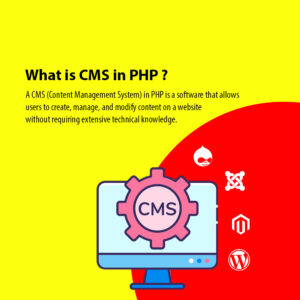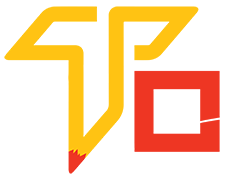PHP Development

You know that the website is developed in PHP, although it is WordPress,
the website is also developed in WordPress, click here to know about WordPress
Some of the key features of PHP include:
- Active Community Support
- Flexibility
- Object – Oriented
- Simplicity
- Security
- Fast
- Efficient
- Cross Plateform
What is framwork in PHP ?
A PHP framework is a platform to build PHP web applications.PHP frameworks provide librariefor commonly used functions, which helps to cut down< on the amount of original code developers need to.
Top 5 PHP framwork name –
1. Laravel framwork
2. Codelgniter framwork
3. Symfont framwork
4. Zend framwork
5. Yii framwork
Which framwork is best laravel or codelgniter?
Laravel is generally preferred for complex, modern web applications with a rich feature set and a larger developer community, while CodeIgniter is chosen for lightweight, simpler projects with a focus on performance and simplicity. The choice depends on your specific project requirements.
PHP is often a good choice for clients for several reasons:
- Cost-effective: PHP is an open-source language, which means it is free to use and distribute. This can be a cost-effective option for clients who are on a tight budget.
- Versatility: PHP is a versatile language that can be used for a wide range of web development projects, from simple websites to complex web applications. This makes it a flexible option for clients who have different needs and requirements.
- Large ecosystem of tools and frameworks: PHP has a large ecosystem of tools and frameworks that can be used to build web applications more efficiently. This can help clients save time and money during the development process.
4. Large talent pool: Because PHP has been around for many years and is widely used, there are many developers who are skilled in the language. This can make it easier for clients to find qualified developers to work on their projects.
5. Compatibility: PHP is compatible with many different operating systems and web servers, which means it can be used on a variety of platforms. This can make it easier for clients to deploy their applications and reach a wider audience.
Overall, PHP can be a good choice for clients who value cost-effectiveness, versatility, compatibility, and a large community of developers and tools.
What is CMS in php?
CMS stands for Content Management System, which refers to a software application or framework built using the PHP programming language for managing digital content. PHP is a popular server-side scripting language used for web development, and many CMS platforms have been developed using PHP.
A PHP CMS typically provides a user-friendly interface that allows users to create, modify, and manage content without requiring extensive coding knowledge. It offers features like content creation, organization, user management, publishing, and presentation, as mentioned in the previous response.

Some well-known PHP-based CMS platforms include:
- WordPress: WordPress is the most widely used CMS globally. It began as a blogging platform but has evolved into a versatile CMS that powers a significant portion of websites on the internet. It offers a large number of themes, plugins, and a user-friendly interface.
- Joomla: Joomla is another popular PHP CMS known for its flexibility and extensibility. It provides a range of built-in features, such as user management, media management, and multilingual support. Joomla is suitable for various types of websites, including e-commerce, social networks, and corporate sites.
- Drupal: Drupal is a powerful PHP CMS that offers advanced functionality and flexibility. It is known for its robustness, scalability, and ability to handle complex projects. Drupal provides a modular architecture, allowing developers to customize and extend its features according to specific requirements.
- Magento: Magento is a widely used PHP CMS specifically designed for e-commerce websites. It offers a comprehensive set of features for online stores, including product management, shopping cart functionality, payment integration, and order management.
PHP development typically involves using a combination of text editors, integrated development environments (IDEs), and command-line tools. Some popular PHP frameworks include Laravel, Symfony, and CodeIgniter, which provide pre-built components and a structure for organizing code.
Overall, PHP is a powerful and flexible language that is widely used in web development and beyond. Its ease of use, large ecosystem, and compatibility with other technologies make it a popular choice for building dynamic and scalable web applications.
PHP frameworks provide a structured and organized way of building web applications by providing pre-built components and libraries for common tasks.
What is the difference between a website developed in a framework and a website developed in a CMS?
Framework-based websites involve custom coding and offer high flexibility but require more development effort, while CMS-based websites use pre-built templates and plugins for easier content management and faster development.
What are the benefits if the website is developed in framework and website developed in CMS?
Benefits of a Framework-Based Website:
1. High Customization: Frameworks allow for extensive customization and flexibility to build unique, tailored solutions.
2. Scalability: Frameworks are well-suited for complex and scalable projects that may require future expansion or unique features.
Benefits of a CMS-Based Website:
1. Ease of Use: CMS platforms are user-friendly, enabling non-technical users to manage and update content easily.
2. Rapid Development: CMS websites can be developed quickly using pre-built templates and plugins, making them suitable for projects with time constraints.
Why should we develop website in framework ?
Why should we develop website in CMS?
Why should you get your website developed from us?
Developing a website in a framework offers several advantages:
1. High Customization
2. Scalability
3. Security
4. Performance
5. Community and Support
6. Long-Term Maintenance
7. Custom Integrations
Developing a website in a CMS offers several advantages:
1. Ease of Content Management
2. Faster Development
3. Scalability
4. SEO-Friendly
5. Large Community
6. Cost-Efficiency
7. Security Updates
There are several compelling reasons to consider us:
1. Expertise
2. Custom Solutions
3. Quality Assurance
4. Timely Delivery
5. Client-Centric Approach
6. Post-Launch Support
7. Competitive Pricing

